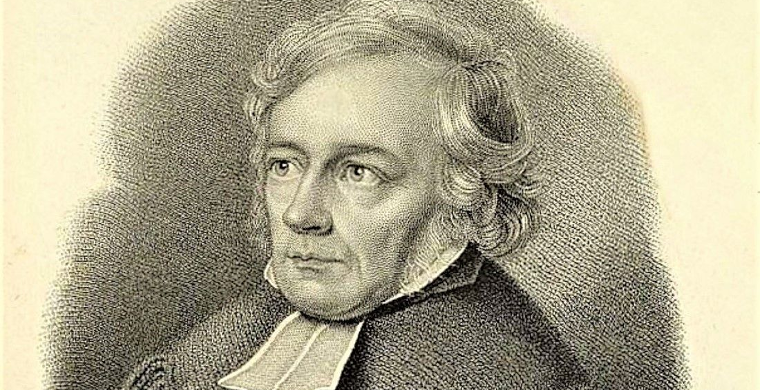Christ, Schleiermacher, Pansexuality, Evangelicalism and the Episcopal Church
COMMENTARY
By David W. Virtue, DD
www.virtueonline.org
January 20, 2022
It should be apparent by now, to even the most unenlightened, that the entire pansexual enterprise being foisted on the Anglican communion is built on a shaky foundation. While most of the West has rolled over, that has not been the case in the Global South, even though money is being used by The Episcopal Church in a divide and conquer campaign with individual dioceses in strongly orthodox African provinces. The campaign is not proving very successful. Anglican provinces like Nigeria, Rwanda, Uganda and Ghana, to name but a few, remain staunchly orthodox in faith and morals.
From the time of Edmond L. Browning through to Michael Curry, Western Anglican and Episcopal leaders began to abandon absolute truth and the authority of scripture in the area of morality staking their thinking knowingly or unknowingly on the 19th century philosopher theologian Friedrich Schleiermacher (1768-1834). It appeared under the guise of "pluriform truths" espoused by Presiding Bishop Frank Griswold but reached its zenith under Rowan Williams the Archbishop of Canterbury, whose Affirming Catholicism believed that the church is being called to demonstrate a more progressive approach in relation to issues of social justice, the environment, gender and sexuality. One could add abortion and in accommodating Islam.
Early episcopal homosexuals like Bishop Paul Moore, Louie Crew and later many others, made the leap of faith away from Scripture in order to justify their feelings, emotions and orientation, rejecting Jesus and St. Paul they made their bed with Schleiermacher.
Scientists from Wageningen University and Research (WUR) and Indiana University have discovered that the increasing irrelevance of factual truth in public discourse is part of a groundswell trend that started decades ago. https://phys.org/news/2022-01-rationality-declined-decades.html
"One possibility when it comes to the trends from 1850 to 1980 is that the rapid developments in science and technology and their socio-economic benefits drove a rise in status of the scientific approach, which gradually permeated culture, society, and its institutions ranging from the education to politics."
Schleiermacher died in 1834, beginning the shift away from rationality and Immanuel Kant.
The authors did find that the shift from rationality to sentiment in book language accelerated around 2007 with the rise of social media.
For Schleiermacher, religion is founded neither on theoretical knowledge nor on morality. According to On Religion, it is instead based on an intuition or feeling of the universe: "Religion's essence is neither thinking nor acting, but intuition and feeling. It wishes to intuit the universe" The term "intuition" here is both revealing and problematic.
Schleiermacher had in mind a sort of insight that is unmediated by concepts. In accordance with this change, The Christian Faith went on to define religion more specifically as a feeling of absolute dependence, or what Schleiermacher described as the immediate consciousness of "an immediate existence-relationship".
All this fits neatly into 20th and 21st Century rejection of absolute truth (hence we live in a post truth period) by mainline Protestant churches, especially those churches like The Episcopal Church that had no constraint in rejecting Scripture's prohibition on sex outside of marriage between a man and woman. If feelings, emotions and intuition now ruled the day, "I feel therefore I am" is a better mantra than "I think therefore I am."
But the rollover is not just with effete liberals and progressives, but evangelicals as well.
Carl R. Trueman, in an article on The Failure of the Evangelical Elites in First Things, writes that within Christian circles, particularly those of the leadership class and its associated institutions, the desire to appease religion's cultured despisers has become a powerful force. Like Schleiermacher, those who hold to this vision think that a winning strategy involves standing shoulder-to-shoulder with the despisers. It means echoing woke outrage. We see this being played out with Justin Welby, the evangelical Archbishop of Canterbury in his desire to accommodate homosexuality. He is fearful that any criticism of homosexual behavior will see him accused of homophobia. Episcopal Presiding Bishop Michael Curry, having accommodated himself to the zeitgeist has no such fear.
The moral preoccupations of secular progressive America now focus on two basic issues: race and LGBTQ+ rights. Christian leaders professing orthodoxy cannot support gay rights in the form of, say, the Equality Act. It is therefore unsurprising that we find so much vocal outrage among members of the Christian establishment on matters surrounding race. And given America's legacy of slavery and segregation, the race issue offers ample opportunity for public displays of self-loathing and expressions of shame, the acts of atonement that progressive American encourages and enjoys, says Trueman. Hence the call for reparations to redress racial inequality not only by secularists but establishment religious leaders like Bishop Curry and Bishop Eugene Sutton, the black Episcopal bishop of Maryland.
Even Schleiermacher would cringe. Christian elites try to persuade the secular world that they aren't so bad -- no longer in terms of Enlightenment conceptions of reason, but in terms of disordered moral preoccupations of the day, writes Trueman.
But we cannot pick and choose moral principles. The Christian gospel is first and foremost a judgment on this world, not a selective affirmation of it in the service of winning friends and influencing people.
Christians should not expect to be warmly embraced by the world, nor even to be tolerated. In John 15, Christ tells his disciples:
If the world hates you, keep in mind that it hated me first. If you belonged to the world, it would love you as its own. As it is, you do not belong to the world, but I have chosen you out of the world. That is why the world hates you.
While new approaches are needed to bring the gospel to a growing spiritually darkening world, nothing must stand in the light of gospel truth that we have received. Compromise is not permitted.
END














